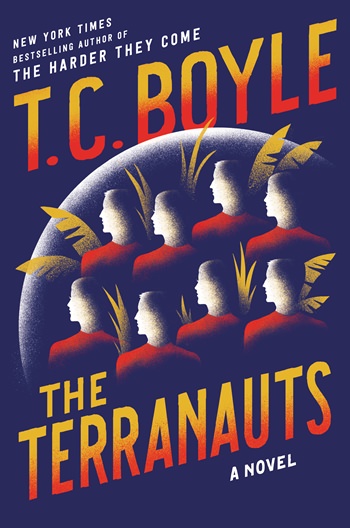“The Terranauts” (Ecco), by T.C. Boyle
Eight scientists living under glass for two years in a self-sustaining, closed ecosystem constructed in the Arizona desert.
Sound familiar?
T.C. Boyle’s latest novel was inspired by history, taking readers inside the dome that in 1991 scientists called Biosphere 2. He’s rechristened it E2, changed all the names and let his imagination run wild to tell the story of what happens when highly educated humans with the best of intentions seal an airlock behind them and commit themselves to a noble experiment.
The mission is to prepare for eventual life on Mars at least a century into the future. The terranauts are hyped as much as the Apollo crews and enjoy an even greater level of celebrity. The story is told by three narrators — two of the scientists living inside E2 and one on the outside who was passed over for the mission. The perspective changes with each chapter, providing readers with a trio of takes on what’s happening.
The juiciest plots, of course, unfold on the inside, as the scientists adapt to a low-calorie diet heavy on porridge, veggies and banana wine. Think of yourself at your hangriest and multiply that ten-fold. Now deprive yourself not only of food, but sex, too, and you can probably begin to write the rest.

Boyle throws a few twists in and ratchets up the drama, but there’s little suspense since the characters literally have nowhere to hide. Overall, the novel felt like it should have been a quicker read, but with the narrators telling their stories in the past tense it never becomes a page-turner.
It was also hard to find someone to root for or against. None of the characters feel truly admirable and none purely contemptible. All are just fallible, and therein lies the fault with humanity eventually trying to live off-Earth. You can create livable conditions, plan all the crops and adjust the oxygen levels, but humans are the top of the food chain for a reason. We are the ultimate self-serving species, and if Boyle’s novel is any indication, we probably always will be.




